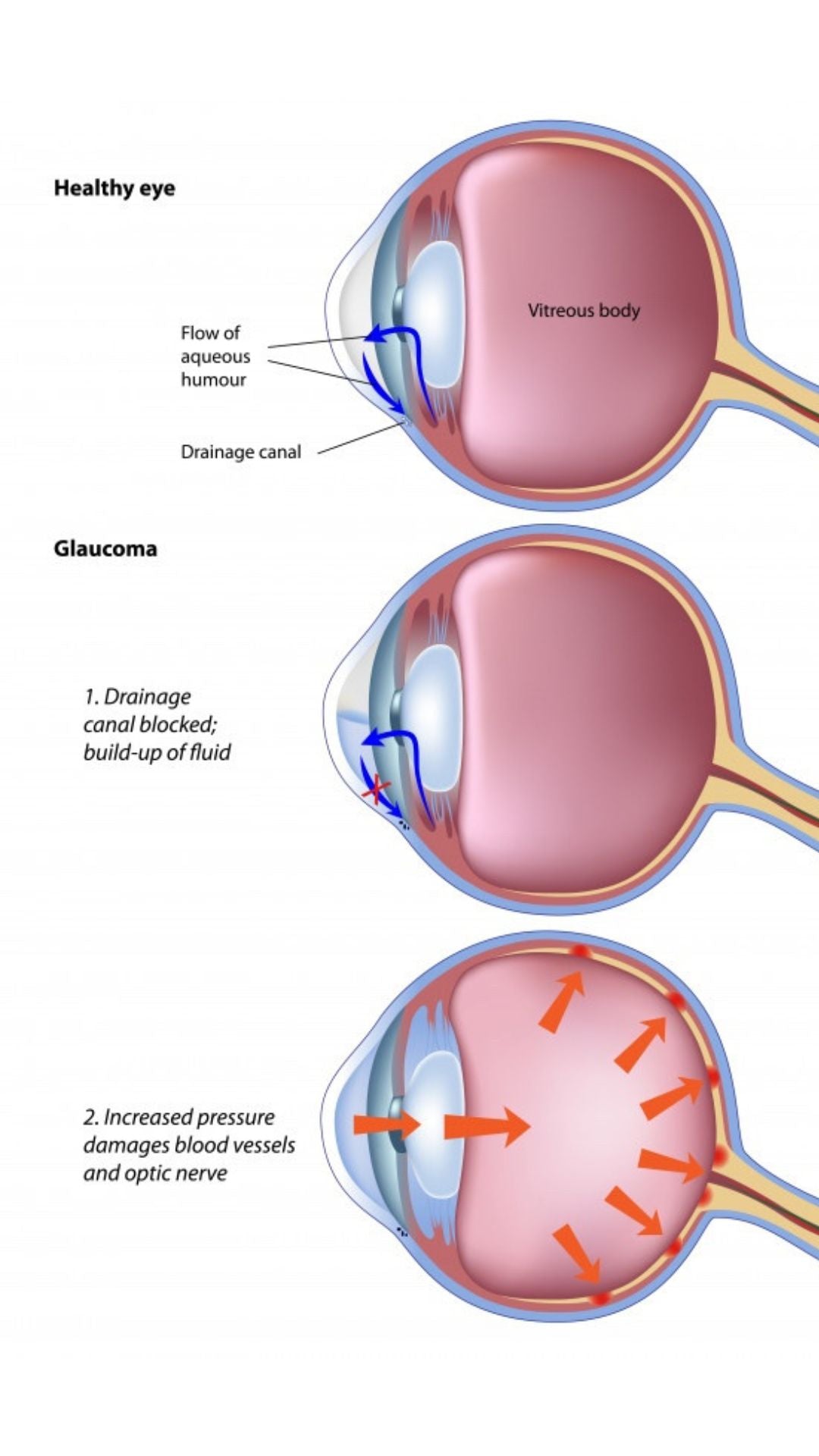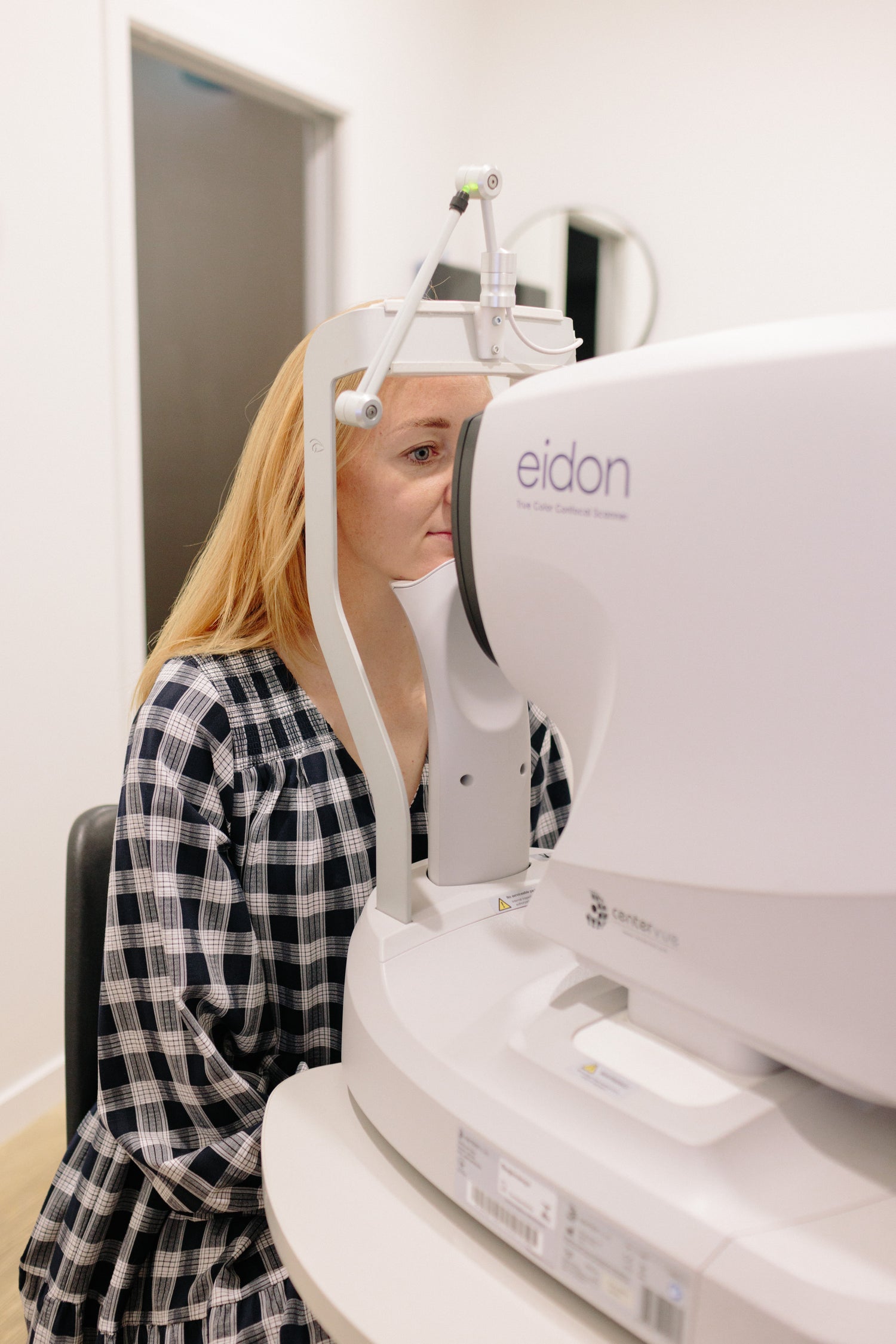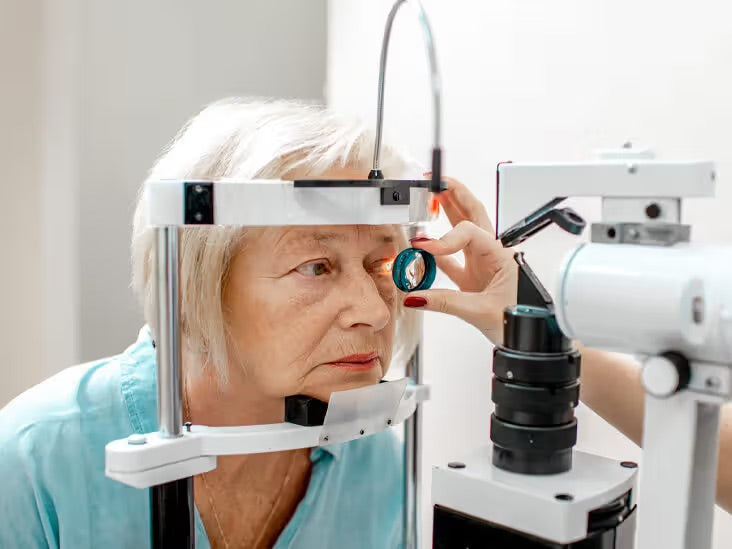Glaucoma is a group of eye diseases that result in damage to the optic nerve.
If left untreated, the damage usually gets worse over a long period of time and can lead to blindness. Although anyone can develop Glaucoma, the risk increases along with age. Glaucoma is the single leading cause of blindness in New Zealand; approximately 2% of people over 40 are affected, which increases to more than 10% for those over 80 years.
Learn more about glaucoma
How does Glaucoma develop?
The optic nerve is found at the back of your eye and has a pretty important job - to carry all the signals from your eyes to your brain. Progressive damage to the optic nerve, results in peripheral (side) vision loss; which then leads to central vision loss. Glaucoma can go unnoticed, as damage to the retinal nerve can happen before any signs loss to your vision.
We like Glaucoma NZ’s analogy: Think of the eye like a digital camera.
When you take a photograph, you connect the camera to a computer to download the image. For your eye, an image is taken and then downloaded through the optic nerve to your brain for interpreting. When the optic nerve is damaged, it’s like cutting the cable that connects the digital camera to the computer. Glaucoma causes irreversible damage to this nerve, like cutting this cable. Unfortunately, unlike the cable, the optic nerve cannot be repaired.
However, with the right treatment and support, 98% of people will preserve their sight.
When does Glaucoma occur?
Glaucoma usually occurs when pressure in your eye increases, which indicates the eye fluid isn’t circulating properly in the front of the eye. While a bit of pressure is essential for good eye health, excessive pressure can cause irreversible damage to the delicate structure within the eye. Treatments for Glaucoma typically aim to lower the pressure in the eye, preventing further damage or vision loss.
Glaucoma is known as the 'silent thief'
It’s been significantly proven that Glaucoma can be inherited and is more likely to show up in later stages of life. Hence, Glaucoma is often referred to as the “silent thief”. Generally there are no warning signs or symptoms, so by the time vision loss has occurred and Glaucoma is detected, it’s usually too late - the damage can not be undone.
Developing slowly over a long period of time, many people often only discover they have the disease further down the track. 50% of people with Glaucoma show absolutely no signs or symptoms and are completely unaware they have the disease.
This is why regular eye examinations are important. People with perfect vision can still have eye problems, or an eye disease. So even if you don’t have glasses, it pays to get those peepers checked every 2 years. They are one of your most valuable assets.
Preventing & treating glaucoma
-
How to prevent Glaucoma
With the right treatment and support, 98% of people will preserve their sight (Glaucoma NZ). At OCULA, we believe prevention is key - which is why we recommend everyone has a routine eye examination every 2 years.
Optical Coherence Tomography (OCT) machines are used at all of our practices, which are able to pick up nerve damage, long before symptoms show. This means we can detect eye diseases, such as Glaucoma, in their early stages and prescribe treatment to prevent the disease developing.
-
Treating Glaucoma
Once detected, there’s a range of treatment options to manage Glaucoma; which can be specific to the type of Glaucoma you have. These can include prescription eye drops - which are suitable for the early stages of Glaucoma; through to surgery.
At OCULA, our team of specialised Optometrists will work with you to create a tailor made vision plan, to ensure correct management of Glaucoma and maintain your eye health.

Types of Glaucoma
Glaucoma can either develop slowly (chronic) or abruptly (acute):
- Chronic Glaucoma is the blockage of the eye’s drainage channels, which occurs gradually. This is the most common form of Glaucoma and is completely painless.
- Acute Glaucoma is when the blockage in the drainage channels of the eye happens suddenly. It is painful and can end up causing permanent vision loss, if not treated immediately.
There are many different types of Glaucoma, with a range of characteristics and causes. If you’ve been diagnosed with Glaucoma, your Optometrist will advise which type you have.
Primary Open-Angle Glaucoma: the most common type of Glaucoma. Caused by a partial blockage in the eye’s drainage system, which means fluid drains out of the eye too slowly, resulting in a gradual increase in pressure within the eye.
Angle-Closure Glaucoma: caused by a bulging iris that blocks the drainage system, resulting in not enough fluid drainage, which builds up pressure behind the eye.
Normal-Tension Glaucoma: when the optic nerve becomes damaged, even though the pressure within the eye is considered normal. The reason is debatable, but thought to be due poor blood flow to the optic nerve.
Developmental Glaucoma: occurs in children and infants, usually within any symptoms.
Pigmentary Glaucoma: where the drainage channels are blocked by a build up of pigment granules.

Prevention is the first line of defence
If you are experiencing any of the above symptoms, have a family history of Glaucoma, or perhaps it’s been a while between eye examinations; our Optometrists would love to see you.
Glaucoma FAQs
Is there a cure for Glaucoma?
Unfortunately once Glaucoma develops, it cannot be reversed. It can however, be controlled through treatment and monitored with regular eye examinations. Glaucoma causes vision loss, which can not be restored, which is why it’s so important to have an eye examination every 2 years; especially if you have a family history of Glaucoma.
Are there other ways to prevent Glaucoma?
With the right treatment and support, 98% of people will preserve their sight (Glaucoma NZ). Together with regular eye examinations and treatments (when necessary), you can maintain good eye health through your lifestyle choices - such as healthy eating and of course, protecting your eyes. Take a look at our blog, for tips and recipes to look after your peepers.
What about other risk factors?
There are a few factors that can contribute to the increased risk of developing Glaucoma:
- An excessive amount of pressure (higher than usual) inside the eye. This can only be detected through an eye examination with a qualified Optometrist or eye doctor.
- Age: increased risk as we get older, especially for those over 60.
- Family history of Glaucoma
- Medical conditions: such as Diabetes, Heart Disease, High Blood Pressure, or Underactive Thyroid
- Other eye conditions like Myopia, Hyperopia, eye injuries, certain types of eye surgery or migraines.
- Extended use of corticosteroids, especially eye drops.
How long would it take to lose all vision through Glaucoma?
Unfortunately, Glaucoma is the most common cause of blindness. Left untreated, total vision loss can occur within several years. Remember, 50% of people with Glaucoma show absolutely no signs or symptoms and are completely unaware they have the disease.


